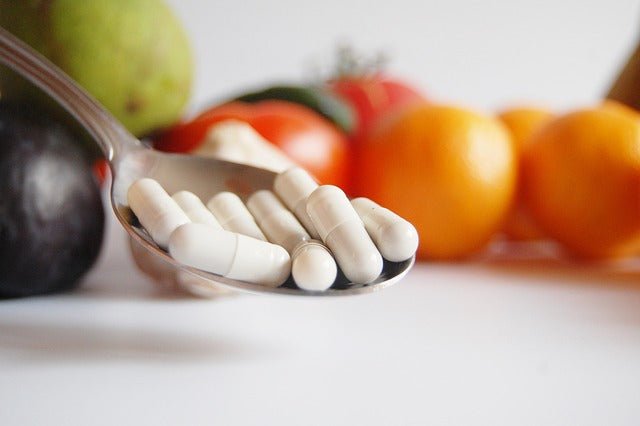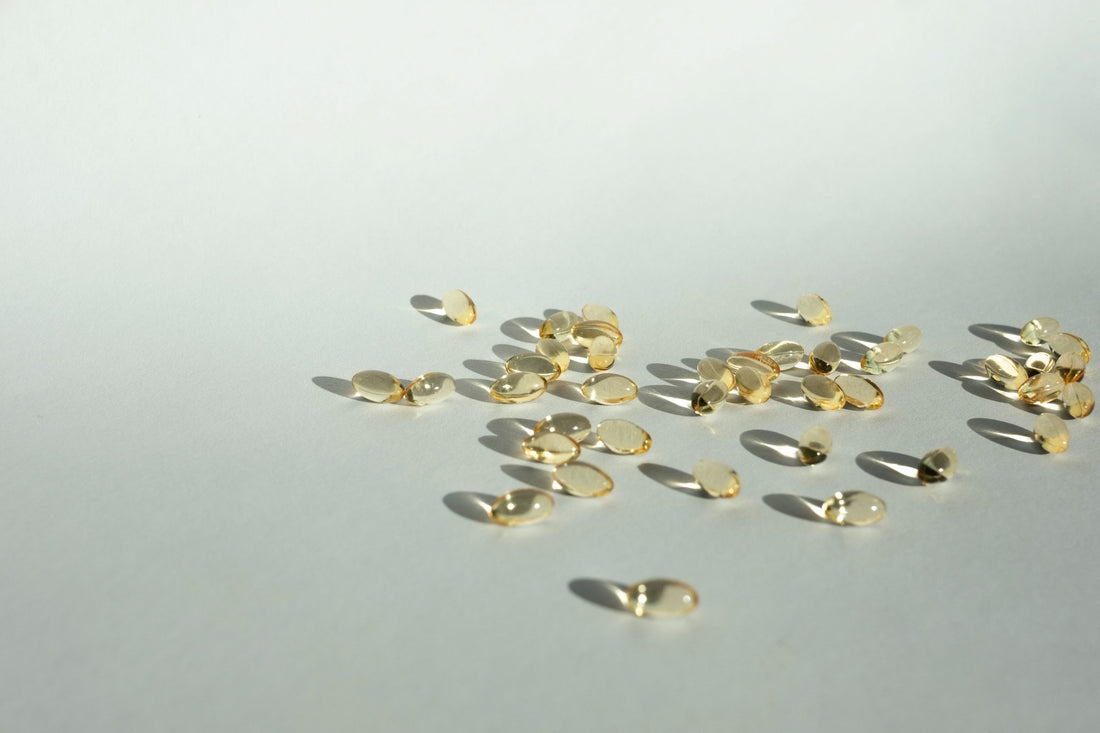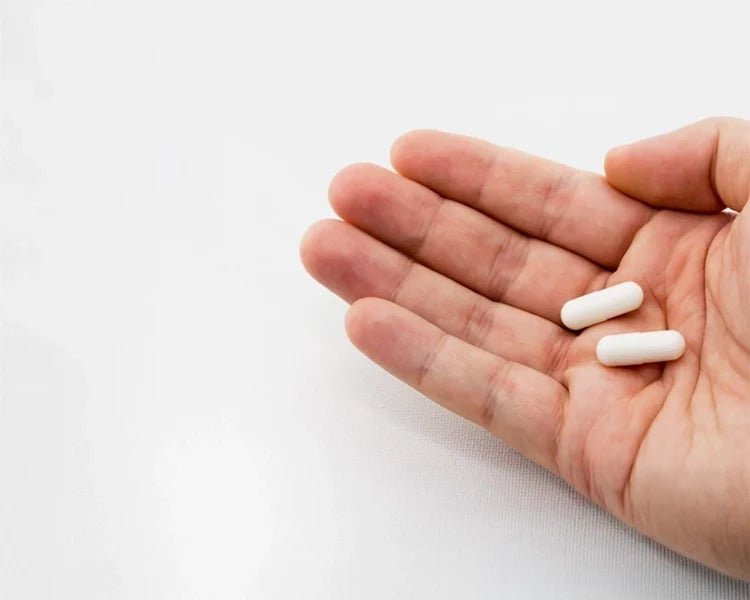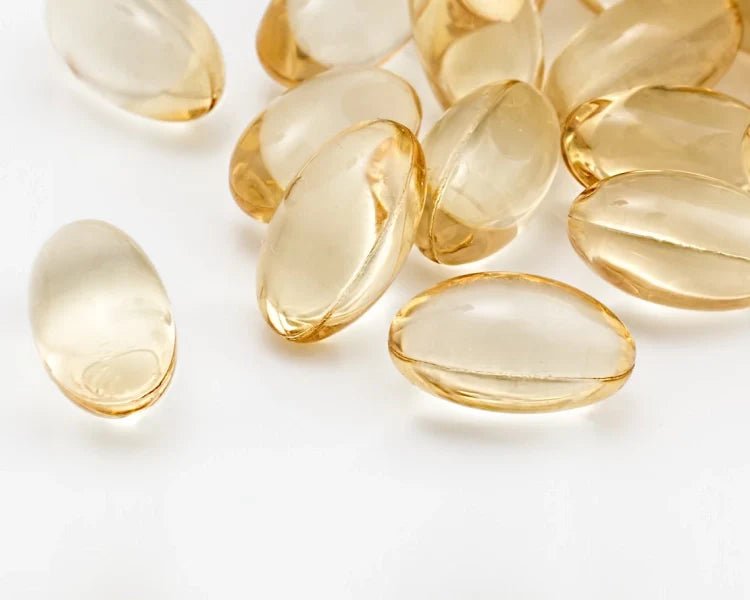Education
How a psychologist can help a person suffering from cancer
The area of psychological assistance for a person with cancer is quite wide, and depending on the type of disease, the scope of this support may vary. Cancer is not only a series of disorders within the body and the complexity of the treatment process, but it is also a very stressful event with significant psychosocial consequences related to the physical, emotional, spiritual and interpersonal dimensions. This disease affects, to a greater or lesser extent, all aspects of functioning, including those related to existence (e.g. confrontation with mortality). These are changed by diagnosis and treatment, recovery and long-term survival, relapse or transition to palliative and end-of-life care. Hearing a diagnosis of cancer is life-changing and a source of significant mental and emotional stress. High levels of psychological stress over long periods of time in cancer patients can lead to anxiety, depression, or both [1]. A frequently experienced condition is the fear of cancer recurrence. The problems that a person affected by cancer may experience mental problems not only by affecting the health-related quality of life [2], but may also have economic consequences [3]. What can a cancer patient expect from a psychologist in such a situation? First of all, it should be remembered that the variety of stages of the disease experienced and the goals of a given person must be accompanied by various forms of psychological impact. The scope of support that an oncology patient can receive includes: psychological counseling - activities aimed at helping in finding new strategies for coping with experienced difficulties; crisis interventions - multi-faceted help for a person in a psychological crisis or other serious life problems; and psychotherapy [4]. The support of a psychologist can be helpful not only when there is a lack of support from family or friends. Research and scientific literature indicate an overall benefit in reducing the severity of mental health symptoms (depression, anxiety [5]), somatic symptoms (pain [6]) and in improving the overall quality of life, well-being, and the process of returning to work [7, 8 ] and thoughts related to the experience [9-11]. There is increasing evidence supporting the use of mind-body therapies as effective supportive care strategies during cancer treatment, although many of them remain under-researched [12]. A psychologist as an outsider, i.e. not emotionally involved in the relationship with the patient, can share a different perspective than the one the patient shares with his or her loved ones. Moreover, it may be easier to discuss difficult topics with him, such as suicidal thoughts or fear of death. Actions on the part of the psychologist may include: support in dealing with emerging emotions; support in managing anxiety related to required medical procedures; adaptation to the disease, its stages and changes in well-being; dealing with the topic of the finiteness of life; learning relaxation; support during remission; and working with the patient's family. Psychologist help for me and my family Cancer does not only affect the sick person. The patient's family also goes through the process of illness and treatment: partner, children, friends, other loved ones. The threat that such a disease poses to a given family can be understood in the light of how different members, individually but also as a team, understand specific stressful situations, their identity and the identity of their family, and the general way of perceiving the world [13, 14]. Neither patients nor their families can ever return to the situation before the disease [15]. Effective coping with breakup and loss often depends on the felt support from others. Providing psychological support can help identify adaptive, functional and maladaptive mechanisms of coping with the situation [16]. Instead of a summary Cancer affects not only the sick person, but also the people closest to the patient. The fear of potentially losing a loved one can be as overwhelming as the disease itself. Not every oncology patient has to seek the help of a psychologist, but if you or someone close to you find yourself in a situation that is a great mental burden for you, do not hesitate to seek such help. Ida Garstecka Bibliography Linden, W., Vodermaier, A., Mackenzie, R., Greig, D., (2012) Anxiety and depression after cancer diagnosis: prevalence rates by cancer type, gender, and age. J Affect Disord. 141:343–351. [ Pubmed ] Dunne, S., Mooney, O., Coffey, L., Sharp, L., Desmond, D., Timon, C., O'Sullivan, E., Gallagher, P., (2107) Psychological variables associated with quality of life following primary treatment for head and neck cancer: a systematic review of the literature from 2004 to 2015. 26 , 149- 160. [ PubMed ] Carlson, LE, Bultz, BD, (2004) Efficacy and medical cost offset of psychosocial interventions in cancer care: making the case for economic analyses. Psychooncology . 13: 837- 849. [ PubMed ] Czabała, C., Sęk, H., Psychological support. (2000) In: J. Strelau (ed.) Academic handbook. (pp. 605-622) Gdańskie Wydawnictwo Psychologiczne [ Google Scholar ] Zainal, NZ, Booth, S., Huppert, FA, (2013) The effectiveness of mindfulness-based stress reduction on mental health of breast cancer patients: a meta-analysis. 22 (7):1457–65 [ PubMed ] Johannsen, M., Farver, I., Beck, N., Zachariae, R., (2013) The effectiveness of psychosocial intervention for pain in breast cancer patients and survivors: a systematic review and meta-analysis. Breast Cancer Res Treat. 138(3):675–90 [ PubMed ] Hunter, E.G., Gibson, R.W., Arbesman, M., D'Amico, M., (2017) Systematic Review of Occupational Therapy and Adult Cancer Rehabilitation: Part 1. Impact of Physical Activity and Symptom Management Interventions. Am J Occup Ther . 71 (2):7102100030p1–7102100030p11. [ Pubmed ] Hunter, E.G., Gibson, R.W., Arbesman, M., D'Amico, M., (2017) Systematic Review of Occupational Therapy and Adult Cancer Rehabilitation: Part 2. Impact of Multidisciplinary Rehabilitation and Psychosocial, Sexuality, and Return-to- Work Interventions. Am J Occup Ther. 71 (2) [ PubMed ] Barrera, I., Spiegel, D., (2014) Review of psychotherapeutic interventions on depression in cancer patients and their impact on disease progression. Int Rev Psychiatry. 26 (1):31–43. [ Pubmed ] Spiegel, D., (2012) Mind matters in cancer survival. Psychooncology . 21 (6):588–93. [ Pubmed ] Galway, K., Black, A., Cantwell, M., Mills, M., Donnelly, M., (2012) Psychosocial interventions to improve quality of life and emotional well-being for recently diagnosed cancer patients. Cochrane Database Syst Rev. 11 : CD007064. [ Pubmed ] Greenlee, H., DuPont-Reyes, M.J., Balneaves, L.G., Carlson, L.E., Cohen, M.R., Deng, G., Johnson, J.A., Mumber, M., Seely, D., Zick, S.M., Boyce, L.M., Tripathy, D., (2017) Clinical practice guidelines on the evidence-based use of integrative therapies during and after breast cancer treatment. CA Cancer J Clin 67 (3):194–232. [ Pubmed ] McLean, LM, Jones, JM, Rydall, AC, Walsh, A., Esplen, MJ, Zimmermann C., Rodin GM (2008) A couples intervention for patients facing advanced cancer and their spouses. Psycho-Oncol 17 :1152–1156 Baider, L., Ever-Hadani, P., Goldzweig, G., Wygoda, M., Peretz, T. (2003) Is perceived family support a relevant variable in psychological distress? A sample of prostate and breast cancer couples. J Psychosome Res 55 :1–8 Baider, L., Cooper, C.L., Kaplan De-Nour, A. (2000) Cancer and the family, Wiley Goldzweig, G., Hubert, A., Walach, N., Brenner, B., Perry, S., Andritsch, E., Baider, L. (2009) Gender and psychological distress among middle- and older-aged colorectal cancer patients and their spouses: an unexpected outcome. Crit Rev Oncol Hematol 70 :71–82
Learn moreMedicine or dietary supplement? What to choose?
Mr. Magister, I would like some magnesium "in the form of a MEDICINE". A conversation at the pharmacy window often begins with this phrase. Then the patient begins a long analysis of the composition and packaging to be 100% sure that there is no inscription "dietary supplement" on it. The pharmacist often avoids talking about this topic, but should still be prepared to talk to the patient. The problem of distinguishing and comparing drugs and dietary supplements is quite difficult. Both product categories are placed on adjacent stands and have similar, and often the same, composition. So what is the mystery and why do patients try so hard to buy a drug and not a dietary supplement? Let's start with individual definitions. A medicinal product is a substance or mixture of substances presented as having properties for the prevention or treatment of diseases occurring in humans or animals or administered for the purpose of making a diagnosis or for the purpose of restoring, improving or modifying the physiological functions of the body through pharmacological, immunological or metabolic action. (Pharmaceutical Law of September 6, 2001, Chapter 1 Art.2 Point 32.) The definition contained in the Act clearly states that a drug (medicinal product) prevents, cures, improves or modifies the physiological functions of the body. Whereas: Dietary supplement - a food intended to supplement a normal diet, being a concentrated source of vitamins or minerals or other substances having a nutritional or other physiological effect, single or combined, placed on the market in a form enabling dosing, in the form of: capsules, tablets, dragees and in other similar forms, sachets with powder, ampoules with liquid, dropper bottles and other similar forms of liquids and powders intended for consumption in small, measured unit quantities, excluding products having the properties of a medicinal product within the meaning of the provisions of pharmaceutical law. (UST AWA of August 25, 2006 on food and nutrition safety, SECTION I, Art. 3 point 3, ppk39) According to this definition, a dietary supplement is a food that is intended to supplement the normal diet with vitamins, minerals and "other" substances. At first glance you can see the difference, but is it really? Looking at the last part of the definition: excluding products with the properties of a medicinal product within the meaning of pharmaceutical law, we reach the point where it is impossible to distinguish a dietary supplement from a drug. What is the difference between a medicinal product containing 2000 IU of vitamin D3 in the form of cholecalciferol and a dietary supplement containing exactly the same in the same form, but in capsules? There are several differences between a drug and a dietary supplement, but neither side achieves a clear competitive advantage. The first issue concerns legal aspects. Various institutions register both product groups. Drug registration is handled by URL (Drug Registration Office). It does this on the basis of many tests and certificates. However, the Chief Pharmaceutical Inspector is responsible for marketing authorization in the country. Dietary supplements are also officially registered by the Chief Sanitary Inspector (GIS) on the basis of an application submitted by the entrepreneur. Therefore, it is not the law that supplements are not subject to control, because the GIS may refuse to register or, in case of uncertainty, may ask for an opinion from the URL. The registration procedure for dietary supplements is shorter and easier to carry out, which is why many drug manufacturers register their next products in this category. The second thing is the doses of individual ingredients. Based on the dose definitions, substances in a drug have a curative or preventive effect, while in a supplement they have a nutritional effect. No less surprising is the fact of the existence of vitamin C - a drug in doses of 200 and 500 mg in the presence of the same vitamin - a supplement in doses of 1000 and 2000 mg. Questions arise about the body's actual needs, the dose that produces a therapeutic or nutritional effect, and the dose that is too high to be safe. Another aspect concerns the origin of the ingredients contained in the products. Due to high standardization requirements and the purity of substances, synthetic substances obtained through chemical reactions are often used in medicinal products. Dietary supplements often contain ingredients of natural origin, which seems to be a healthier solution and more adapted to the living organism. They also contain plant ingredients and their extracts. Sometimes dietary supplements contain plant ingredients that are not found in our climate or in Europe, but which have a proven positive effect on health and fitness. Further differences concern promotion and advertising. No elements of the packaging, names or advertising of supplements may suggest medicinal properties. Each package must also have the description "DIETARY SUPPLEMENT". Every day we are attacked by advertisements for medicines and supplements, so much so that it is difficult to know what and whether it is worth buying to support our health. We consume large amounts of medicines and dietary supplements every day. This is due to the fact that the availability of supplements is very high, advertising in the media is intense, and society is taught to respond to changes in its health by purchasing new preparations. Supplements are used to improve the condition of hair, nails, skin, eyes, joints, etc. We supplement vitamins, minerals and herbs using multi-ingredient products. Therefore, it is important to know the exact composition of a given preparation. There is a high probability that several preparations will contain the same ingredients and by taking a whole range of products we will provide too high doses of the mentioned vitamins or minerals. It is also worth remembering that the most important source of supplementation is food, i.e. what we eat. So how should you approach the use of supplements to make it safe? Let us remember that choosing a drug as a safe form will not always meet the nutritional and health needs of the body. On the other hand, not all supplement manufacturers meet the quality standards of their products. Taking this summary into account, you should follow a few rules to achieve the appropriate nutritional effect while maintaining safety. Here are the rules worth following Let's choose high-end supplements - there are several leading companies on the market. Some of them can be found on our website. Companies with extensive experience, certified products and production standards such as GMP, ISO, etc. The most advantageous offers are provided by companies that grow medicinal herbs themselves and produce vitamin and mineral ingredients instead of mass purchases from suppliers. Let's use only those substances that we need - it's best to discuss the selection of ingredients with a specialist. Do not use supplements recommended by third parties. The appropriate selection of supplements in oncological diseases and post-oncological therapies is extremely important. Many ingredients have the ability to stimulate excessive cell growth. If possible, use single-component or multi-component preparations. We will then avoid the possibility of duplicating doses of the same substance. Let's ask a specialist when and how to take a given product. Often, the absorption of the substance and the effect of the entire preparation depend on the time of day or the meal we take. In light of these assumptions, I believe that the use of dietary supplements can be safe and bring good results. By choosing only medicinal products, we will not achieve long-term effects and visible results. A well-balanced and well-thought-out combination of medicine and dietary supplement can achieve very good results. Let's take the medicines that are necessary for us, let's take the dietary supplements that we need, but let's not forget about proper nutritious food, including fruit and vegetables. Krzysztof Juszkiewicz
Learn moreNeeds in cancer patients - how to communicate them?
Communication regarding sexual needs in cancer patients is important, but unfortunately often overlooked. There is a false belief that, given the many challenges that cancer brings to a patient, sexuality is one of the last things that should be taken into account. This is absolutely not true - sexual needs are physiological needs and, just like any other, they require satisfaction. Of course, in the course of oncological disease, the possibilities of satisfying sexual needs may (but do not have to) be slightly modified, but this does not mean that the patient's sexual life ceases to be a source of fulfillment and satisfaction [1] . The treatment team has an important role in the process of caring for the well-being of an oncology patient. First of all, it is good practice to create a safe and trusted environment for the patient. The patient should feel comfortable and safe because this is what creates space to open conversations about sexual needs. It is important for the doctor to create an atmosphere of trust so that the patient knows that he is welcome to express his concerns and ask questions about sexuality. It is also good practice for the doctor to initiate a conversation about sexual needs. During such a conversation, it is worth assuring the patient that it is natural to have questions or concerns about the impact of the disease and oncological treatment on the sexual sphere. Open questions will certainly be helpful in such a conversation, as they will allow the patient to express his concerns or describe new experiences [2] . Proactivity is also important - listening carefully to the patient. This creates space to express your emotions, concerns and questions. At this point, it is worth paying attention to how important it is to listen carefully and show interest and understanding. The next step is to provide the patient with the necessary information about possible side effects of treatment, changes in sexual function, and available strategies and resources that can help deal with these challenges. In providing comprehensive care, the cooperation of the entire treatment team is crucial - many different fields of medicine may influence the sexual needs of oncology patients. Patient care can be provided not only by doctors and nurses, but also by psychologists and sexologists and psychotherapists. It is important to provide the patient with comprehensive care to be aware of problems arising during treatment, because this allows the patient to be referred to the appropriate specialist if necessary [3] . Your own work also plays an invaluable role - it is worth encouraging the patient to seek support - your doctor can inform you about available resources and support groups for cancer patients. Self-help groups can be valuable support in dealing with challenges in meeting sexual needs. Support can be received either through individual therapy, through group therapy sessions, or through use from extensive resources conveniently available electronically. Monika Kaszuba [1] Cichosz M., Wieczorek A. (2016), Sexual problems of cancer patients. Roczniki Psychology, 19(2), pp. 167-187 [2] Bębenek M., Czuba B., Pilewska-Kozak A., Wojtyna E. (2015). The impact of cancer on the sexual sphere. Przegląd Menopauzalny, 14(4), pp. 273-278 [3] Sobolewski M., (2018). Sexuality of patients with cancer of the reproductive organs - recommendations of the European Society of Oncology (ESMO) and other scientific societies. Ginekologia Polska, 89(2), pp. 103-107
Learn moreThe impact of cancer on sexuality
Cancer can have a very diverse impact on a person's sexuality. It depends on many factors, including the type and stage of the disease, the type of treatment used and the individual characteristics of the patient and psychological support - both from specialists and the patient's relatives. Cancer may affect physical and hormonal changes in the body, decreased energy, chronic fatigue, changes in appearance, stress, emotional changes or self-esteem, body image and interpersonal relationships. All the areas indicated above may have a greater or lesser impact on sexuality. Some types of cancer and treatments can lead to physical changes that may affect sexual function. They can, but they don't have to - remember that each case is different, so generalizations are subject to a large margin of error. However, to use specific examples, surgery to remove genital organs may have a significant impact on experiences related to sexuality. Other treatments - such as radiotherapy (especially in the genital area) or chemotherapy - may be equally important and may result in pain, vaginal dryness or erection problems. The desire and appetite for physical intimacy and sex may also decrease [1] . Some types of cancer and their treatment may affect hormone levels. Examples of treatments that influence hormonal changes include removal of the ovaries, surgical treatment of breast cancer or targeted hormonal therapy. This type of treatment may affect both the level of desire and sexual function [2] . Cancer and its treatment usually lead to decreased energy and increased fatigue. It is often accompanied by changes in appearance, such as weight loss, hair loss, or scars after surgery. It is worth remembering that sexuality has various dimensions and may also include building a sense of security and attractiveness. Sex is not prohibited for cancer patients - unless it is a cancer related to the reproductive organs. Undoubtedly, it may be difficult for loved ones to realize that a person suffering from cancer often feels unattractive and defective. The change in self-perception affects the feeling of increasing stress and deepening depression of mood. This is a difficult moment both for the sick person and for their loved ones. A person suffering from oncology has every right to closeness - it is worth talking about their needs and concerns [3] . It may be helpful to formulate messages as direct as possible - e.g. "you can touch me", "don't be afraid to touch me, it doesn't hurt me", "it's important to me, I want you to keep touching me", or "I want you to as little as possible has changed between us. I have to go to the doctor, I have to take medications, but let everything else be as it used to be, I need your touch as much as before (or even more than before).” Cancer may affect self-esteem, body image, interpersonal relationships, and perception of one's sexuality. Some patients may feel a sense of loss, fear of rejection, shame, difficulty communicating with a partner or difficulties in finding their way in a new reality after the diagnosis. It is important that patients talk to their doctors about all problems related to sexuality - there are various strategies, therapies and treatment methods that may be helpful in dealing with the new challenges presented by the disease. Many patients also use the help of psychologists, sexologists or patient support groups [4] . Problems related to sexuality affect the quality of life and should not be treated marginally. Sexual health is important, and when problems arise, it is worth contacting specialists and asking for help. Monika Kaszuba [1] Dębska G., Samochowiec J. (2017). Sexual problems in the course of cancer. Psychiatria Polska, 51(6), pp. 1127-1138 [2] Lemańska A., Skrzypulec-Pinta V., Łuszczak M, et al. (2013). Sexual function in women after breast cancer treatment. “Medycyna Ogólna i Nauki o Zdrowiu”, 19(4), pp. 395-400 [3] Kowalski P., Filipiak M., Krajewski P. (2016) . Reproduction and sexuality of oncology patients. Nursing Polish, 2(60), pp. 175-178 [4] Sobolewski M., (2018). Sexuality of patients with cancer of the reproductive organs - recommendations of the European Society of Oncology (ESMO) and other scientific societies. Ginekologia Polska, 89(2), pp. 103-107
Learn moreAnti-cancer diet – is there a miracle diet?
Society's growing awareness of the impact of lifestyle on health means that when we are at increased risk of cancer or when we experience oncological disease in our immediate environment, we look for a way to help protect ourselves against cancer. In addition to realizing the need for early diagnosis, one of the first associations is often a change in the current lifestyle, including eating habits. And rightly so, because according to data published by the World Health Organization, as many as 30-40% of all cancer cases could be avoided by giving up stimulants (nicotine, alcohol), improving the quality of the diet, increasing physical activity and maintaining a healthy weight. The Cancer Research Foundation (WCRF) also drew attention to dietary factors as important in cancer prevention, which devoted as many as 8 out of 10 main recommendations for cancer prevention to elements related to diet. Similarly, the World Cancer Report 2020 emphasizes that both the quantity (e.g. energy value, dietary fiber content) and the quality of consumed food products and meals are important in dietary cancer prevention. Is there one universal anti-cancer diet model? When looking for the answer to this question, many people get lost in the thicket of information available on the Internet or popular mass media. A large number of publications on this topic, repeated dietary myths and nutritional recommendations not supported by scientific evidence make it difficult to decide on the optimal diet. It also happens that you may come across nutritional recommendations that are not only unjustified, but may even pose a threat to the health of the people using them, such as in the case of highly restrictive diets that eliminate selected dietary macronutrients or significantly deviate from the principles of the so-called rational nutrition. Therefore, first of all, it should be clearly noted that an anti-cancer diet is a way of eating that, on the one hand, provides ingredients with a potential protective effect, and on the other - limits or even eliminates those with proven carcinogenic effects. This is a diet model that is not specific and limited only to cancer, but serves to improve the health of the general population, e.g., at the same time protects against the development of obesity, cardiovascular diseases, or type 2 diabetes. In contrast, highly individualized dietary assumptions support for oncological therapy (because there is no diet that in itself "cures cancer"), the main principles of the anti-cancer diet apply in many clinical situations, can be used by a wide range of recipients and, importantly, are safe. Principles of an anti-cancer diet in a nutshell The current state of scientific knowledge allows us to conclude that the most beneficial in this respect is a diet pattern based mainly on plant products, rich in whole grain products, non-starchy vegetables, fruits and legumes. Plant products are the main source of substances with anti-carcinogenic properties and reducing the risk of recurrence - dietary fiber, vitamins and minerals, and bioactive natural substances, including: phytoestrogens, polyphenols, phytosterols and monoterpenes. WCRF recommends that plant products be consumed in at least 5 main meals and that their amount per day should not be less than 400g. In the case of dietary fiber, its daily intake should not be lower than 30g. According to WCRF, animal products should be significantly restricted in the diet - mainly red meat. Its consumption should not exceed 3 servings per week (350-500 grams per week). The consumption of processed meat should be reduced to the minimum necessary, and if possible, this type of food products should be completely excluded from the diet. In fact, the anti-cancer diet does not involve giving up dairy products, poultry or fish, but it clearly indicates that their share in the daily menu cannot dominate the amount of plant products. Similarly to a "healthy, rational diet", people who want to reduce the risk of cancer are recommended to significantly limit or even give up the consumption of processed foods high in saturated and trans fats and sugar. Excluding sweetened drinks from the diet is another feature of the anti-cancer diet. These drinks, by providing simple sugars, also increase the amount of calories consumed and result in an increase in body fat. Many previous studies have proven that some cancers, including cancer of the oral cavity, esophagus, stomach, pancreas, liver, large intestine, breast and endometrium, may result from excess body weight, hence it is also important to ensure that the energy value of the diet was tailored to the real needs of the body. In the case of alcohol, complete abstinence is recommended. Bearing in mind that no food product contains all potentially anticarcinogenic ingredients, make sure to diversify your diet. Only by eating a variety of foods can you provide complementary ingredients with anti-cancer potential. To sum up, it is worth emphasizing once again that there is no single, ideal for everyone and 100% effective model of an anti-cancer diet, but there is strong evidence that a diet based on products of plant origin (various colored vegetables and fruits, whole grain products, legumes) , in which the supply of meat (especially red), processed products (e.g. instant food, fast food, rich in E-additives), simple sugars and alcohol is eliminated, may protect against the development of cancer. The goal of effective dietary health prevention is to permanently improve eating behavior, so when looking for the perfect anti-cancer diet, do not expect a "miracle diet", but focus on a well-thought-out, rational one, tailored to your capabilities and goals, and long-term improvement of eating habits in the direction of the principles described above. Małgorzata Moszak World Cancer Research Fund/American Institute for Cancer Research. Diet, Nutrition, Physical Activity and Cancer: a Global Perspective. Continuous Update Project Expert Report 2018 Key TJ, Bradbury KE, Perez-Cornago A, et al. Diet, nutrition, and cancer risk: what do we know and what is the way forward? BMJ. 2020 Mar 5;368:m511. Wild CP, Weiderpass E, Stewart BW, editors (2020). World Cancer Report: Cancer Research for Cancer Prevention. Lyon, France: International Agency for Research on Cancer. Available from: http://publications.iarc.fr/586. License: CC BY-NC-ND 3.0 IGO.
Learn more







